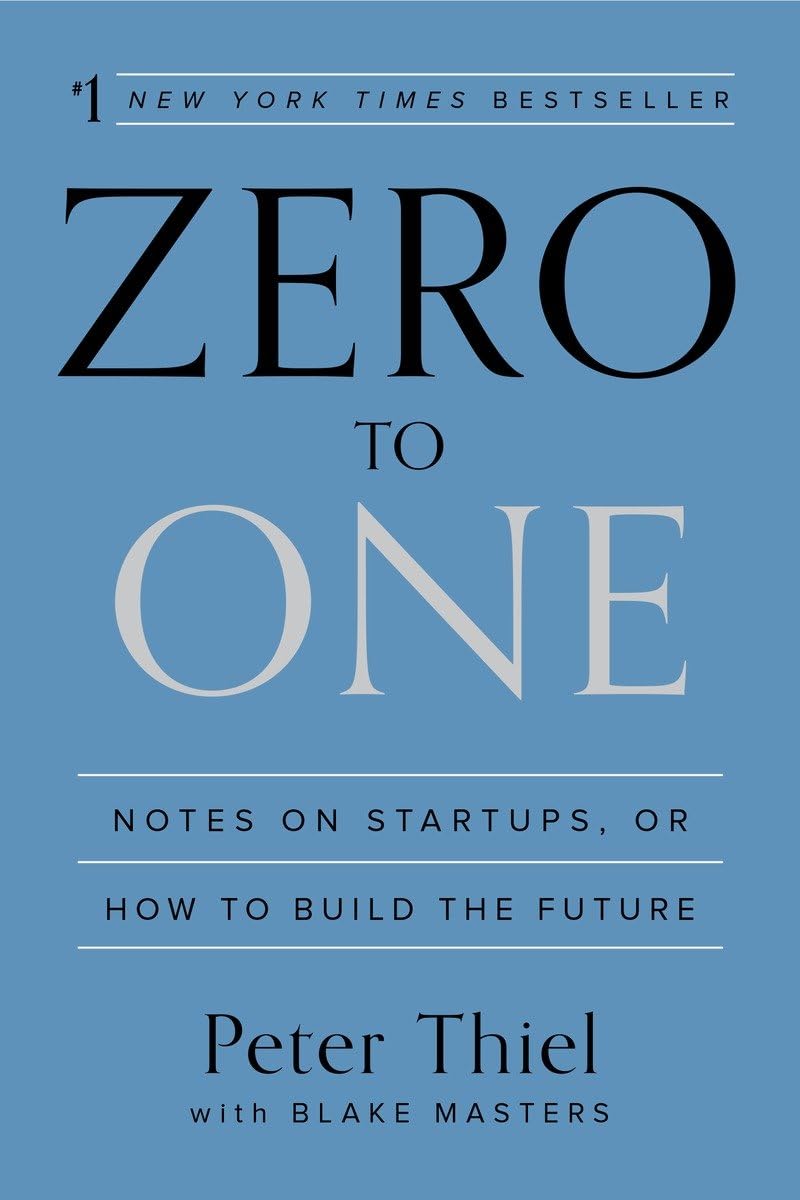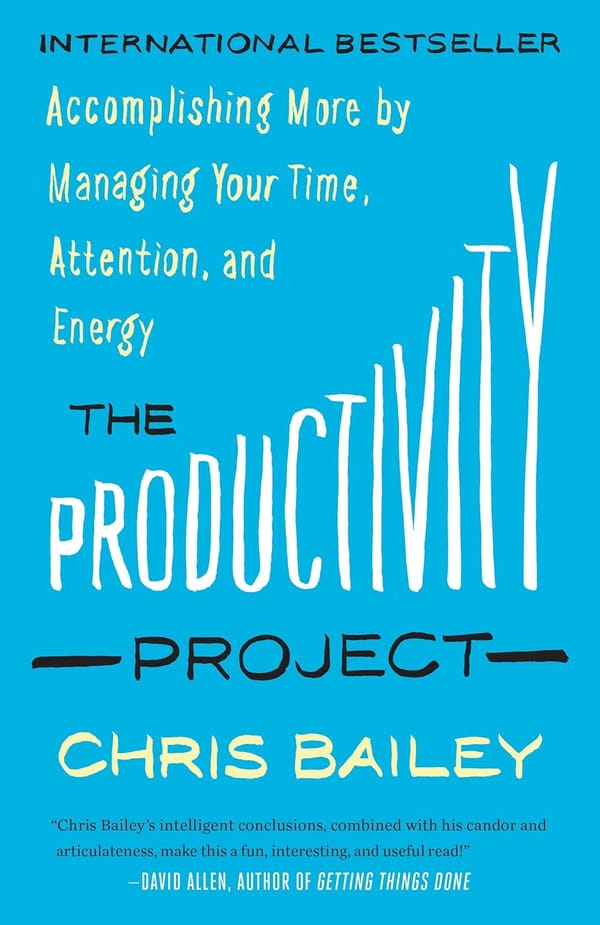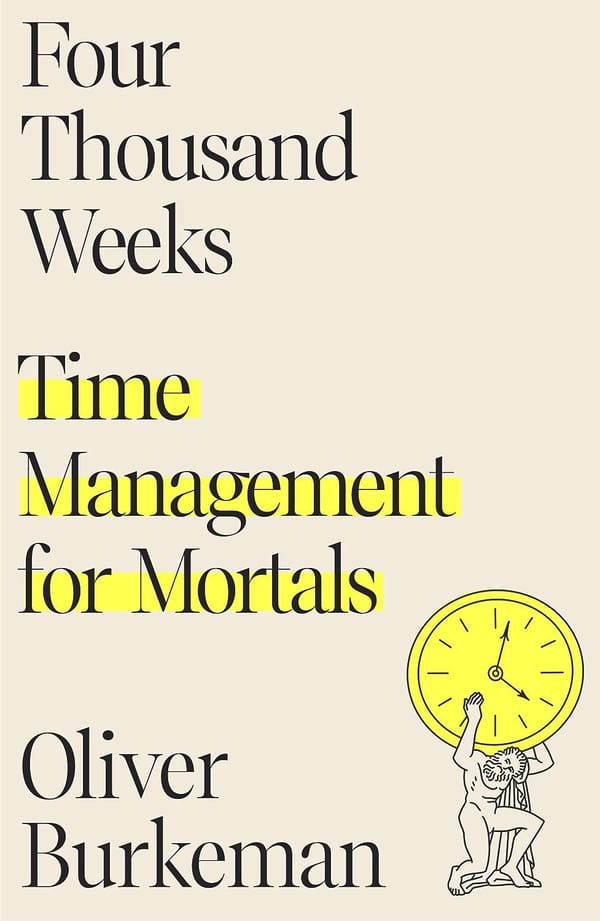Zero to One - Book Notes
If you enjoyed my review, consider supporting me by using the affiliate links below to purchase the book. Your kindness fuels my passion for sharing captivating reads with you!
🚀 The Book in 3 Sentences
- "Zero to One" advocates for prioritizing vertical progress (0 to 1) over horizontal progress (1 to n) in the business world, emphasizing the importance of innovation and creating something new.
- Thiel challenges conventional views on monopolies, presenting them as a fundamental condition for success rather than an exception.
- The book encourages entrepreneurs to think independently, start small, build strong brands, and focus on long-term value creation, presenting a comprehensive guide to navigating the complexities of startup ventures and business strategy.
👱 Who Should Read it?
"Zero to One" is recommended for entrepreneurs, business leaders, investors, students, and innovators seeking unconventional insights into startup success, business strategy, and the role of technology. Thiel's contrarian approach challenges traditional views on innovation, monopolies, and long-term planning, making the book valuable for those navigating the complexities of the business world.
🍀 How the Book Changed Me
I read this book as a preparation for founding my own business and it gave me some valuable insights and techniques to use for my preparations.
✍️ Top 3 Quotes
- "Horizontal progress is easy to imagine because we already know what it looks like. Vertical progress is harder to imagine because it requires doing something nobody else has ever done."
- "The most contrarian thing of all is not to oppose the crowd but to think for yourself."
- "Every great business is defined by its ability to generate cash flows in the future."
🔨 3 Action Points
- Focus on Vertical Progress:
Prioritize innovation and creating something new (0 to 1) rather than replicating existing ideas (1 to n). Embrace the challenges of venturing into unexplored territories and invest in technologies that set your product or service apart. - Build Monopolistic Advantages:
Understand the characteristics of monopolies, such as proprietary technology, network effects, economies of scale, and branding. Strive to create a unique market position that allows you to set your own prices and drive long-term innovation, rather than competing solely on a horizontal level. - Prioritize Planning, Team Dynamics, and Secrets:
Place significant emphasis on careful co-founder selection, shared prehistory, and resolving conflicts between ownership and control. Encourage contrarian thinking and actively seek out and capitalize on secrets, as they can be the driving force behind breakthrough innovations. Additionally, develop a comprehensive business plan that addresses Thiel's seven critical business questions, including considerations about technology, timing, and market share
📗 Summary & Notes
Horizontal vs. Vertical Progress:
Horizontal Progress (1 to n) involves replicating existing ideas, often associated with globalization. This form of progress is easy to understand, as it revolves around copying what already works. In contrast, Vertical Progress (0 to 1) requires creating something new, typically driven by technology. This form of progress is more challenging, as it involves venturing into uncharted territory and going beyond existing ideas.
Importance of Monopolies:
Contrary to common belief, Peter Thiel argues that monopolies play a crucial role in driving progress and innovation. Monopolies have the ability to set their own prices, enabling long-term planning and the financing of ambitious projects that competitors, locked in intense competition, cannot afford.
Characteristics of monopolies include:
- proprietary technology
- network effects
- economies of scale
- branding
Startup Strategies:
Startups, according to Thiel, should operate on the principle of collaboration but remain small enough to maintain efficiency. He challenges the conventional notion that growth is always the key metric for success. Thiel emphasizes that creating value is not enough; it is equally essential to capture some of that value to sustain a viable business model.
Planning and Contrarian Thinking:
Thiel encourages entrepreneurs to question established business norms and think independently. He introduces the concept of definite optimists, definite pessimists, and indefinite optimists/pessimists based on one's belief in the future's predictability and positivity/negativity.
Decision-Making and Team Dynamics:
Critical to a startup's success is co-founder selection, a decision likened to getting married. Thiel emphasizes the importance of shared prehistory to avoid potential conflicts. Conflicts within startups often arise between ownership and control, primarily between founders and investors on the board.
Secrets and Innovation:
Thiel emphasizes the need to identify and capitalize on secrets, whether about nature or people, to drive innovation. He encourages contrarian thinking, suggesting that unconventional ideas and approaches are essential for finding hidden opportunities and staying ahead in the competitive business landscape.
Distribution and Sales:
Products with inherent viral potential can lead to market domination. Thiel argues that advertising's role is to embed subtle impressions, and sales, when hidden, work best. Effective distribution strategies are crucial, and a product must be sold along with its company to employees and investors.
Seven Critical Business Questions:
Addressing crucial aspects of a business, the seven questions include considerations about breakthrough technology, timing, monopoly creation, team dynamics, distribution strategies, market defensibility, and the identification of unique opportunities.
- The Engineering Question: Can you create breakthrough technology instead of incremental improvements?
- The Timing Question: Is now the right time to start your particular business?
- The Monopoly Question: Are you starting with a big share of a small market?
- The People Question: Do you have the right team?
- The Distribution Question: Do you have a way to not just create but deliver your product?
- The Durability Question: Will your market position be defensible 10 and 20 years into the future?
- The Secret Question: Have you identified a unique opportunity that others don’t see?



